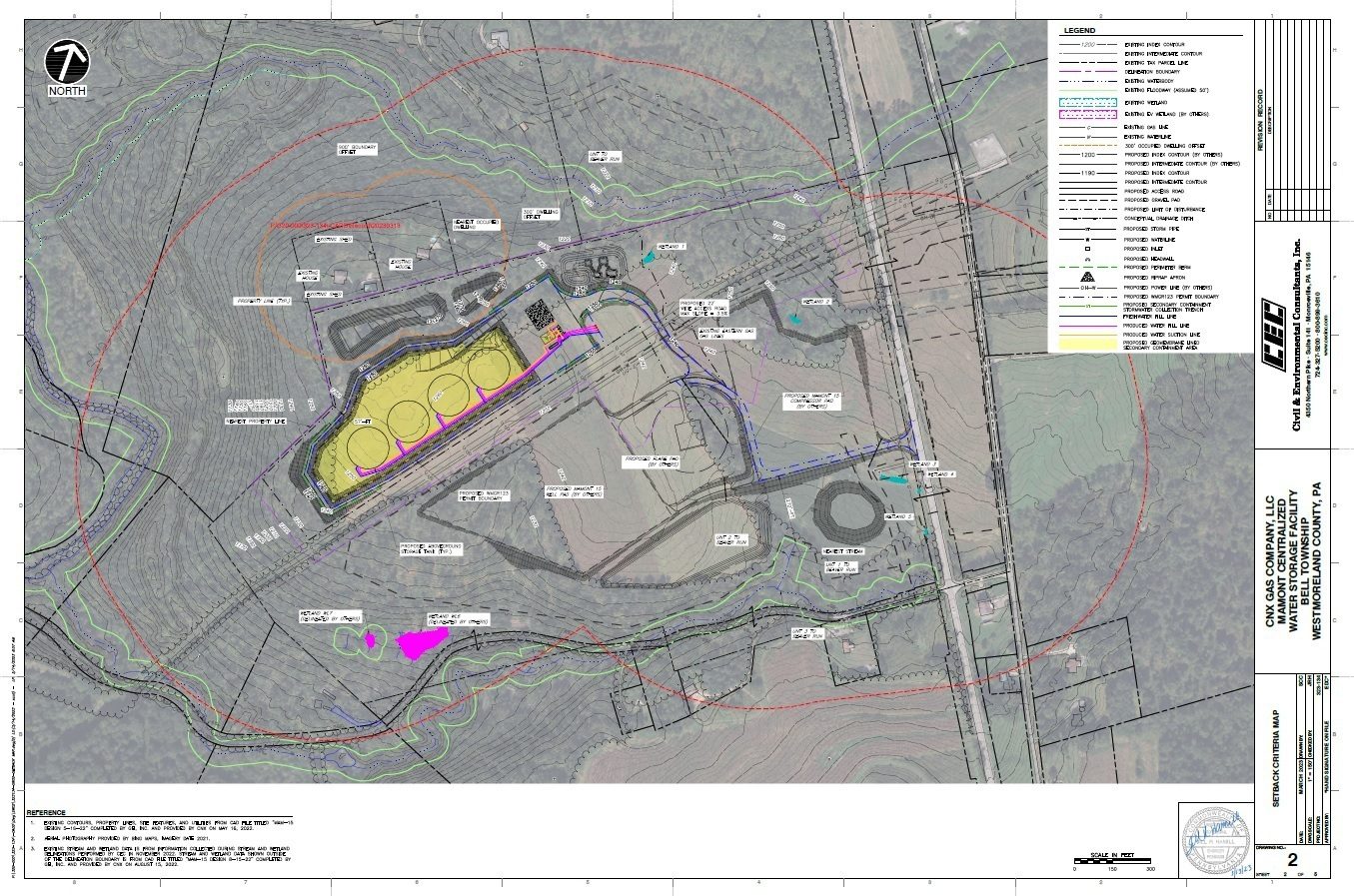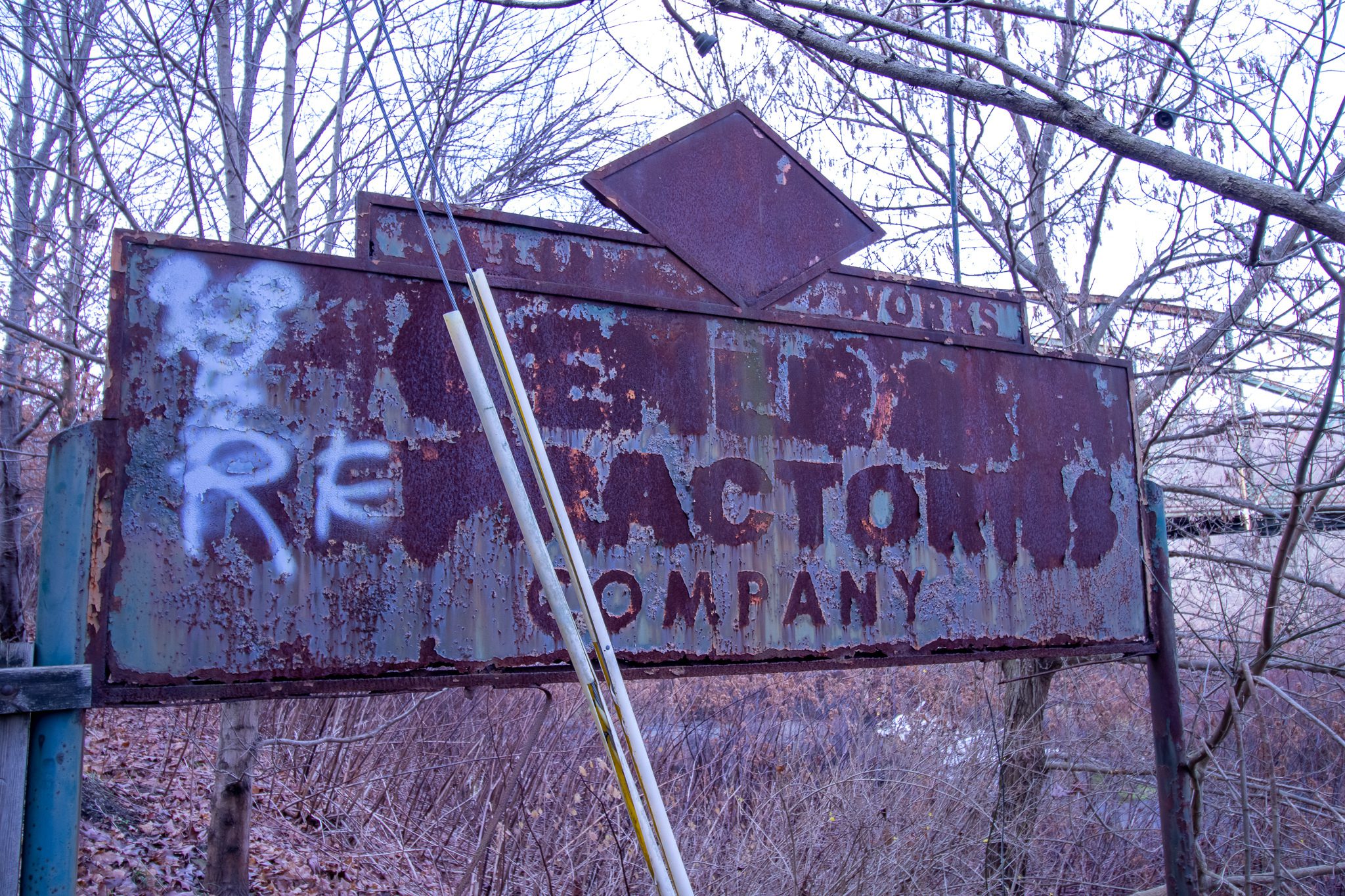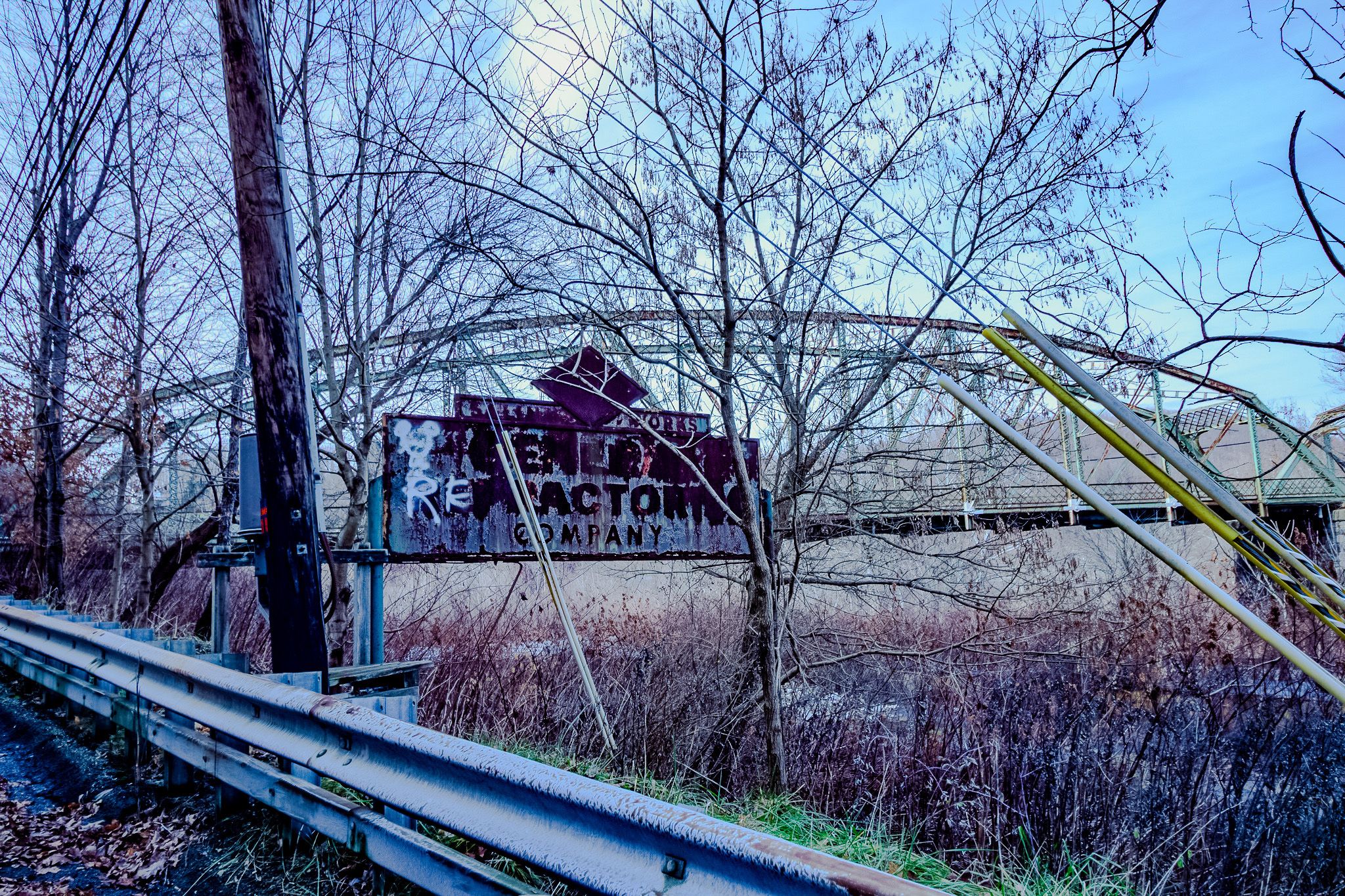12/15/2023 It was brought to my attention the rear tank has been removed from this facility and due to the change the facility is again in permitting through the PA DEP (PA DEP Site ID 862100 and 862661).
Introduction:
The Mamont Centralized Water Storage Facility, proposed to be located in Bell Township, Westmoreland County, Pennsylvania (819 by Bell Point Road), has garnered growing attention and concern due to its capacity for storing hazardous waste, including radioactive materials. CNX, an energy company, seeks coverage under General Permit WMGR123 to install aboveground storage tanks for processing oil and gas liquid waste. Fluids destined for the facility will be transported through pipelines and trucks. While the recycled water will be used for oil and gas operations, apprehensions have arisen regarding potential radiation risks stemming from the presence of naturally occurring radioactive material (NORM) and technologically enhanced NORM (TENORM) in the fluids and byproduct sludge.
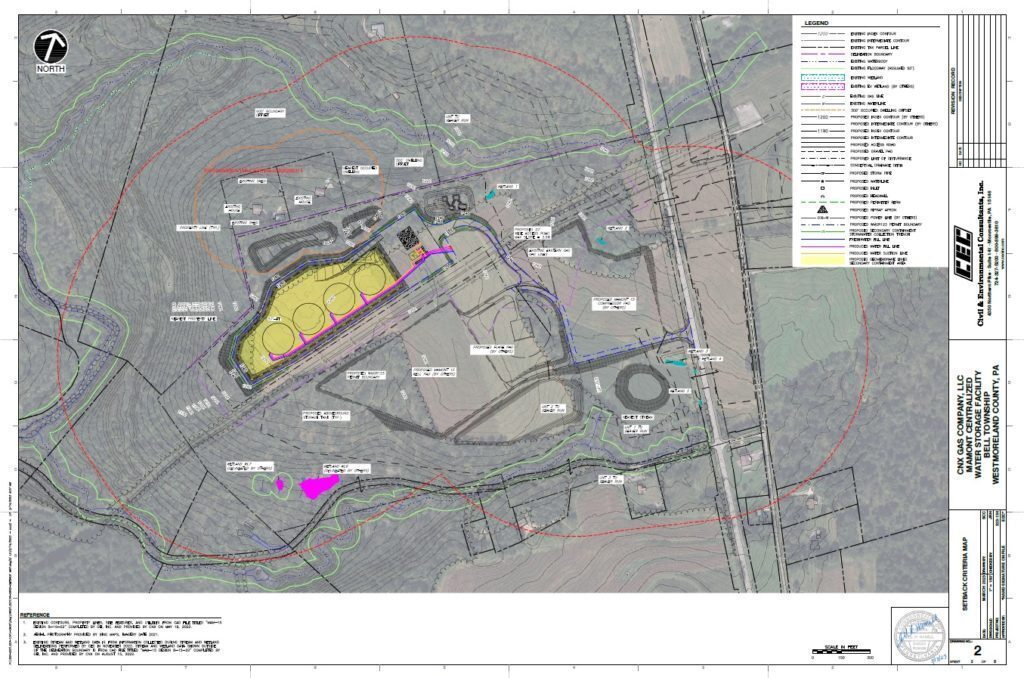
Radiation Hazards and Isotopes:
The Mamont Centralized Water Storage Facility poses a potential radiation risk due to the presence of NORM and TENORM in the incoming fluids and processed sludge. Notably, radium-226 and radium-228 are the most prevalent isotopes found in both the produced water and the processed sludge. These isotopes emit ionizing radiation, which, if not adequately controlled and contained, can have adverse effects on human health.
Proximity to Residential Areas:
A significant concern surrounding the Mamont facility is its close proximity to multiple households. While the exact distance between the facility and residential areas needs consideration, the presence of potentially hazardous radioactive materials raises questions about the safety of nearby residents. Radiation can lead to long-term health consequences, including an increased risk of cancer and other radiation-related illnesses.
Employee Safety Measures:
Given the potential radiation risks associated with the facility, ensuring the safety of on-site employees is of paramount importance. The Pennsylvania Department of Environmental Protection (PA DEP) has provided a radiation safety plan for this facility that suggests employees may be required to wear dosimeters. Dosimeters are devices used to measure and record an individual’s exposure to ionizing radiation. By monitoring radiation levels, workers can ensure that their exposure remains within acceptable limits, thereby minimizing potential health risks associated with prolonged radiation exposure. However, it is crucial to consider the potential risks for residents in the vicinity as well.
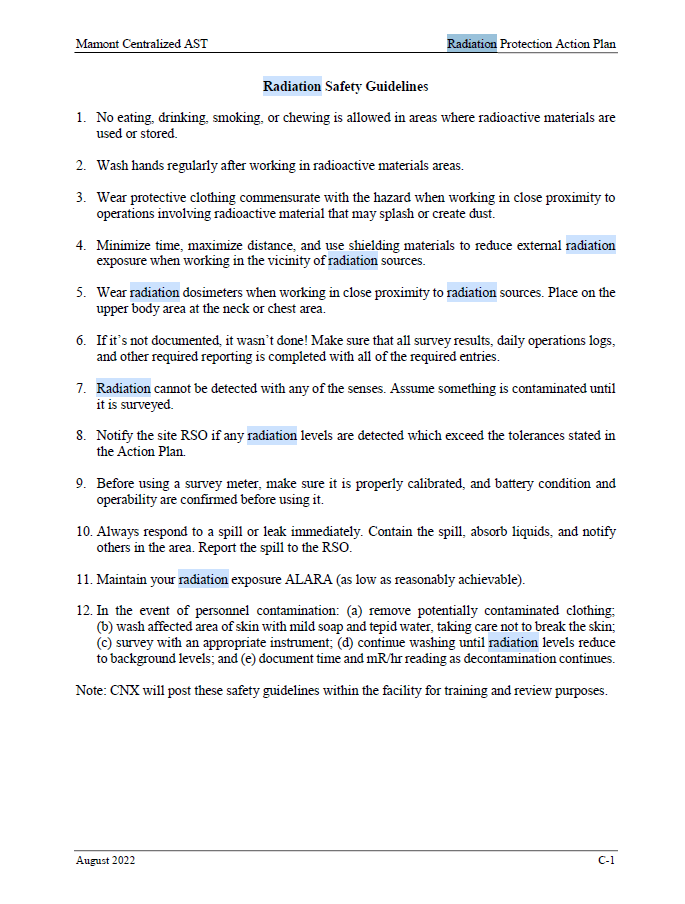
Public Concerns and Community Engagement:
The planned expansion of the Mamont Centralized Water Storage Facility has understandably raised concerns among the local community. Shockingly, in interviews conducted with five individuals living within half a mile of the facility, only two were aware of the project, and only one knew its intended purpose. One resident, who requested anonymity, expressed significant concerns as they operated an organic farm downhill from the site and believed it would negatively impact their livelihood. To address these concerns and foster transparency, it is essential for CNX and relevant authorities to engage in open dialogue with the public. Hosting community meetings, organizing information sessions, and providing comprehensive safety plans can alleviate fears and build trust. It is imperative that the public’s voices and concerns are heard, and that appropriate measures are taken to safeguard their health and well-being.
Conclusion:
The potential capacity of the Mamont Centralized Water Storage Facility to store hazardous waste, including radioactive materials, has sparked significant concerns among residents of Bell Township. With the presence of NORM and TENORM, such as radium-226 and radium-228, there are valid worries about the potential health risks associated with radiation exposure. Ensuring the safety of both employees and nearby households necessitates implementing comprehensive safety measures, including dosimeters and strict adherence to radiation safety protocols. It is crucial for CNX and the relevant authorities to address public concerns transparently and engage in meaningful dialogue to ensure the well-being of the community and effectively mitigate any potential risks posed by the facility. Additionally, the transportation of fluids via pipelines and trucks further highlights the need for stringent safety measures to prevent any potential leaks or accidents that could exacerbate the radiation risks to both workers and the surrounding environment.
